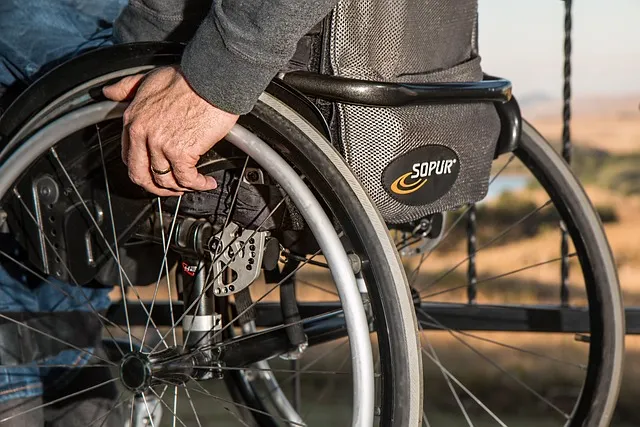Stress management through Cognitive Behavioral Therapy (CBT) offered by Kaiser Health is an effective approach to improve mental well-being. CBT helps individuals identify and change negative thought patterns, promoting healthier coping mechanisms. Daily self-care rituals incorporating mindfulness, meditation, and stretching, combined with structured CBT sessions, can significantly enhance physical and mental health. Kaiser's comprehensive range of mental health services, including teen and trauma-focused CBT programs, empower people to take control of their well-being, reducing stress levels and improving mood regulation. Prioritizing self-care and CBT techniques leads to a more resilient future.
Discover effective self-care practices to reduce stress and enhance your overall wellbeing. This comprehensive guide explores multiple approaches, from understanding the root causes of stress through cognitive behavioral therapy (CBT) to incorporating daily rituals that nurture both physical and mental health. We delve into the role of Kaiser’s resources in personal growth and stress management, offering strategies for long-term resilience. By implementing these practices, you’ll embark on a journey towards a more balanced and serene life.
- Understanding Stress and Its Impact: A Journey Inwards
- Cognitive Behavioral Therapy (CBT): Unlocking Mindful Coping Strategies
- Daily Rituals for Self-Care: Nurturing Your Physical and Mental Wellbeing
- The Role of Kaiser's Resources in Personal Growth and Stress Management
- Sustaining Self-Care Practices: Building Resilience for Long-Term Stress Reduction
Understanding Stress and Its Impact: A Journey Inwards

Stress is a complex response to various internal and external factors that can significantly impact our overall well-being. It’s essential to recognize that stress isn’t always negative; a healthy dose can motivate us, but prolonged or excessive stress can lead to physical and mental health issues. This is where self-care practices come into play as a powerful tool for stress reduction.
Cognitive Behavioral Therapy (CBT), offered by many healthcare providers like Kaiser, is an effective approach to managing stress. CBT helps individuals identify and challenge negative thought patterns and behaviors contributing to stress. By understanding the connection between thoughts, feelings, and actions, one can develop healthier coping mechanisms. At the Kaiser clinic, for instance, specialized therapy sessions cater to various concerns, including eating disorders and stress-related conditions, utilizing the principles of CBT to empower individuals on their journey towards better mental health.
Cognitive Behavioral Therapy (CBT): Unlocking Mindful Coping Strategies

Cognitive Behavioral Therapy (CBT) is a highly effective approach to managing stress and promoting mental well-being. This evidence-based practice helps individuals identify and change negative thought patterns and behaviors, ultimately leading to healthier coping strategies. CBT, as offered by Kaiser, focuses on empowering individuals to take control of their thoughts and emotions, which in turn reduces the impact of stressful situations.
One of the strengths of Kaiser’s CBT techniques is its ability to teach mindfulness skills. By learning to recognize and challenge distorted thinking, individuals can develop a more balanced perspective. This is particularly beneficial for veterans suffering from PTSD, as CBT has shown promise in helping them navigate their traumatic experiences and reduce symptoms. Additionally, child and adolescent CBT programs under Kaiser have proven effective in addressing various mental health concerns, fostering resilience and healthy coping mechanisms at a crucial developmental stage.
Daily Rituals for Self-Care: Nurturing Your Physical and Mental Wellbeing

Incorporating daily rituals into your routine is a powerful self-care practice that supports both physical and mental wellbeing. Beyond basic hygiene, consider activities like mindful meditation or gentle stretching to ease tension accumulated throughout the day. Cognitive Behavioral Therapy (CBT), backed by research from Kaiser, emphasizes the importance of these practices in managing stress and promoting positive thinking patterns. By dedicating even just 10-15 minutes each morning or evening for calming rituals, you can cultivate a sense of control and resilience, making it an effective kaiser cbt technique.
Leveraging resources offered by Kaiser’s CBT sessions coverage can further enrich your self-care journey. These structured programs are designed to help individuals navigate challenging emotions and thoughts, offering valuable tools to combat stress and anxiety. For instance, learning breathing exercises and progressive muscle relaxation techniques during kaiser cbt sessions can be applied daily as simple yet powerful self-care rituals. Even for those dealing with substance abuse, kaiser cbt has shown significant benefits, providing coping mechanisms that contribute to long-term mental health and wellbeing.
The Role of Kaiser's Resources in Personal Growth and Stress Management

Kaiser’s resources play a pivotal role in facilitating personal growth and effective stress management. The organization offers a range of mental health services, with cognitive behavioral therapy (CBT) being a prominent approach. Kaiser teen CBT programs cater to adolescents, providing them with essential tools to navigate emotional challenges and improve overall well-being. Moreover, the kaiser trauma-focused cognitive behavioral therapy is designed to help individuals process and overcome traumatic experiences, fostering resilience and healthy coping mechanisms.
These CBT interventions are renowned for their outcomes and effectiveness, backed by extensive research. By focusing on identifying negative thought patterns and replacing them with positive, realistic ones, kaiser cbt outcomes include reduced stress levels, improved mood regulation, and enhanced overall mental health. Such programs empower individuals to take charge of their mental well-being, offering lifelong skills to manage stress in various aspects of life.
Sustaining Self-Care Practices: Building Resilience for Long-Term Stress Reduction

Self-care isn’t just a fleeting trend; it’s a lifelong practice that builds resilience against stress and promotes overall well-being. To truly reduce stress in the long term, integrating self-care into your routine becomes essential. This involves a holistic approach that addresses physical, mental, and emotional needs. Techniques such as mindfulness meditation, regular exercise, and adequate sleep form the foundation of a robust self-care regimen. Cognitive Behavioral Therapy (CBT), backed by organizations like Kaiser Health, offers evidence-based strategies to manage stress and challenge negative thought patterns.
The consistent practice of these techniques cultivates mental fortitude, enabling individuals to navigate stressful situations with greater ease. Kaiser CBT programs have garnered success stories from those who have learned valuable coping mechanisms, transforming their lives for the better. By prioritizing self-care and embracing evidence-based therapies like CBT, available through providers near you, you’re not just managing stress; you’re investing in a healthier, more resilient future.
By integrating self-care practices, such as Cognitive Behavioral Therapy (CBT) and daily rituals, individuals can effectively manage stress. Kaiser’s resources play a crucial role in personal growth and stress management, offering tools for long-term resilience. Understanding stress and its impact is the first step towards a journey of inward transformation, where mindful coping strategies become essential. Sustaining these practices ensures continued well-being and a reduced stress response, ultimately enhancing quality of life.






